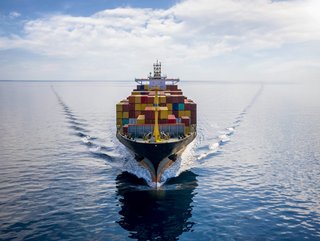33% of shipping industry stagnant on green fuel transition

A recent study on the shipping industry's transition to lower-carbon fuels reveals that one-third of participants are uncertain about the type of fuel that their ships will utilise in the coming decades.
The survey was conducted by the Global Centre for Maritime Decarbonisation, the Global Maritime Forum, and the Mærsk Mc-Kinney Møller Center for Zero Carbon Shipping, with analysis by McKinsey.
Respondents included shipping companies that own and operate fleets comprising roughly 20% of the world’s total capacity.
A total of 46% say they have already run pilot programmes involving one or more low-carbon fuels, such as biodiesel instead of traditional fuel oil, whereas 35% have taken no action regarding greener fuels.
33% of respondents said they "don't know" the type of fuel their fleets will operate on in 2030 and 2050, while the remaining 67% have varying expectations regarding future fuel usage.
The mounting pressure on sea shipping firms
Projections for sea fleet fuel consumption in 2050 are equally divided between green ammonia, biodiesel, and fuel oil, each accounting for 16% each. Blue ammonia, liquefied natural gas (LNG), e-methanol, biomethanol, biomethane, and e-methane follow closely with 6% to 10% each.
According to the respondents, they plan to distribute the consumption across various compatible fuels that the ship engines can use interchangeably, including heavy fuel oil, marine gas oil, marine diesel oil, biodiesel, and LNG.
By 2050, 49% of respondents expect to adopt four or more fuel families within their own fleets, while another 43% expect to adopt three families.
Making the leap to a greener-fuel future will require decades of work, but respondents are clear on what they will need to accelerate the transition. More than 80% identify four factors that will speed clean-fuel adoption:
- Greater availability of alternative fuels
- Cost reductions for alternative fuels
- Customer willingness to pay a ‘green premium’
- Regulatory change
There is mounting pressure on sea shipping companies to decarbonise, because the International Maritime Organisation (IMO) expects the sea freight industry to be running on clean energy by 2050.
The shipping sector powers the global economy, being involved in an estimated 90% of all trade. Estimates from the International Chamber of Shipping indicate that around 11bn tons of goods are transported by ships each year – from raw materials to finished products. Global sea shipping accounts for roughly 3% of total global carbon emissions, and these emissions, if unchecked, could rise by as much as half again by 2050.
Sea freight carriers eyeing ship fuel compliance
In a recently interview with Supply Chain Digital, Alex Hersham, CEO of digital freight forwarder and logistics provider Zencargo said the IMO’s demands means carriers “will keep a close eye on what ships are compliant”, and that they will also “analyse which older ships can be scrapped if there is no ROI in making them compliant”.
For older vessels, he says, the choice will be to switch to cleaner and more expensive biofuels “or to simply slow down”, to cut down on fuel consumption.
“With new capacity entering the market, many carriers might choose to retire older vessels rather than maintain inefficient operations,” says Hersham.
He also points out that the IMO is not forcing vessels to comply until 2024, and that it will not prevent non-compliant vessels from sailing until 2025.
“This means any scrapping or idling of ships for the next two years is at the carriers’ discretion,” he says.






